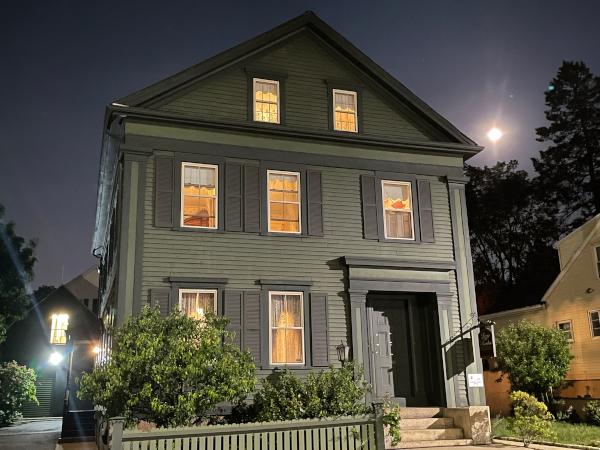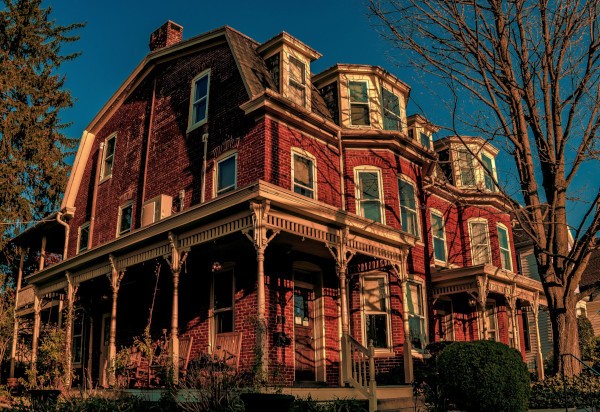Consoda: Dining With the Dead
Christmas takes on a distinctive and poignant character in the heart of Portugal, where cobbled streets wind through historic towns, and the scent of chestnuts mingles with the crisp winter air. Amidst the jubilant celebrations and twinkling lights, one tradition stands out as a testament to the country’s rich cultural tapestry — Consoda.
Beyond customary feasts and festive cheer, Consoda is a unique practice that bridges the realms of the living and the departed. This Christmas mourning ritual, observed by families across Portugal, weaves a thread of remembrance, ensuring that the spirits of ancestors remain an integral part of the holiday season.
Though it may seem a bit morbid for some, this ritual holds a special place in the hearts of those who celebrate it. Join us as we introduce you to a tradition that’s all about family, both alive and dead.
Interested in discovering some not-so-common rituals embedded in your town’s history? Take a ghost tour with US Ghost Adventures and uncover a mysterious world that comes alive in the darkest corners of your city.
A Midnight Meal
As the world immerses itself in the universal joy of Christmas, Portugal unveils a tradition deeply rooted in familial love and remembrance. Consoda is marked by a fasting period the Catholic Church recommends before Christmas Day.
Following the Midnight Mass, known as the Rooster’s Mass, a festive supper, termed Consoada, features meats and traditional sweets. In some regions, places at the table are reserved for departed relatives, exemplifying a custom rooted in providing comfort to their souls.
The Christmas Eve supper typically includes bacalhau (salted cod) or another fish, with subsequent meals offering meat dishes. Southern Portugal sees the culmination of a ritual involving slaughtering a pig to enrich the Christmas table with various cuts and sausages. The Bolo-Rei, resembling a crown adorned with dry and crystallized fruits, becomes a symbolic centerpiece.
Post-supper, Christian tradition leads to the Missa do Galo (Midnight Mass), a fixture in Christmas celebrations since the 5th century, held at midnight with a specially prepared Nativity scene.
Partaking in a grand feast, meticulously prepared to cater not only to the living but also to the unseen guests from beyond, goes beyond mere homage; it mirrors the sentiment of Mexico’s Día de las Muertos, emphasizing a connection with ancestors that transcend the boundaries of time and space. The belief is held dear that by extending gifts to the departed, the forthcoming year will be one of prosperity and goodwill.
A subtle yet significant aspect of Consoda also involves leaving breadcrumbs in the hearth. This practice, reminiscent of ancient traditions where seeds were left with the deceased for a bountiful harvest, adds a touch of antiquity to the Christmas mourning ritual. It is a silent wish for abundance and a nod to the agricultural roots that are an inseparable part of Portuguese heritage.
Kindred Spirits
While Consoda finds its unique place in Portuguese Christmas celebrations, similar customs and traditions echo across the globe, creating a mosaic of rituals that honor the spirits of the departed.
As mentioned above, Mexico’s Día de Muertos, which occurs in early November, shares the essence of Consoda by inviting families to build altars adorned with offerings, photographs, and favorite foods of their dearly departed. It’s a time when cemeteries transform into colorful, bustling spaces, resonating with the joyous memories of those who have passed away.
Japan, too, has its counterpart in the form of Obon, a Buddhist custom that spans several days in mid-August. During this period, families welcome the spirits of their ancestors back home, lighting lanterns to guide them and offering food at household altars. The festival culminates in Toro Nagashi, a ceremony where paper lanterns are floated down rivers, symbolizing the peaceful journey of the spirits back to the other world.
In Haiti, the Vodou festival of Fèt Gede, celebrated in early November, mirrors the spirit of remembering and honoring ancestors. Families gather at cemeteries, adorning graves with candles, food, and possessions to ensure the spirits’ comfort and convey a sense of ongoing connection.
A Heartfelt Embrace of the Unseen
Consoda is a poignant thread that binds the past with the present in the tapestry of global Christmas traditions. As families gather around tables laden with festive delights, they not only celebrate the season but also pay homage to the enduring spirits of their ancestors.
Consoda, with its unique blend of solemnity and familial warmth, invites the world to witness a Christmas tradition that goes beyond the surface revelries. In Portugal, it’s a tradition that is a heartfelt embrace of the unseen, a remembrance that transcends time, and a celebration that encompasses both the living and the departed.
Here, too, at US Ghost Adventures, we would love to invite you to start a new Christmas Tradition with us. The Christmas season is as full of ghosts as Halloween, if not more so. So why not add a Ghost Tour to your holiday festivities?
Sources:
https://en.wikipedia.org/wiki/Day_of_the_Dead
https://www.visitportugal.com/en/content/christmas-eve-supper-and-midnight-mass
https://www.japan-guide.com/e/e2286.html
https://visithaiti.com/festivals-events/fet-gede-haitian-day-of-the-dead/





